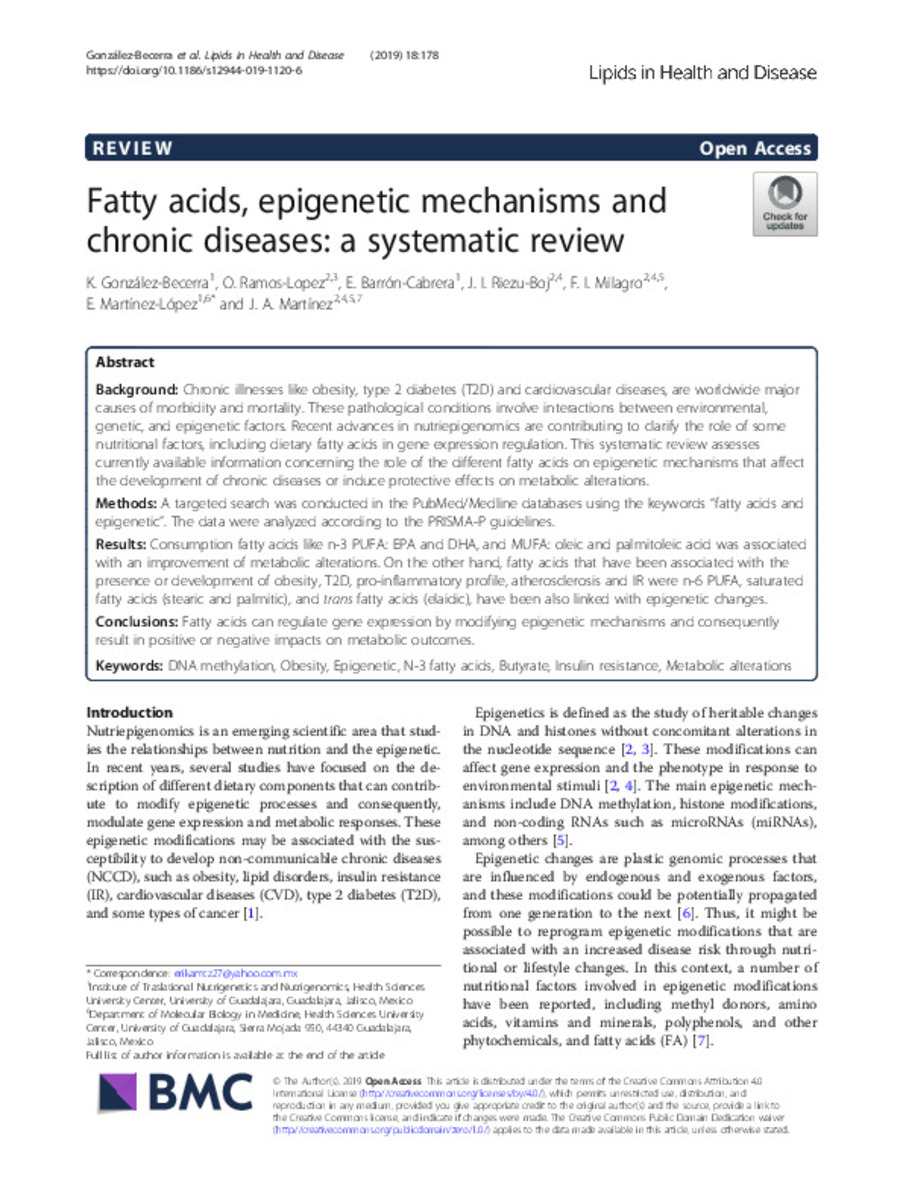Fatty acids, epigenetic mechanisms and chronic diseases: a systematic review
Palabras clave :
DNA methylation
Obesity
Epigenetic
N-3 fatty acids
Butyrate
Insulin resistance
Metabolic alterations
Fecha de publicación :
2019
Editorial :
Springer Science and Business Media LLC
Nota:
Open Access This article is distributed under the terms of the Creative Commons Attribution 4.0 International License , which permits unrestricted use, distribution, and reproduction in any medium, provided you give appropriate credit to the original author(s) and the source, provide a link to the Creative Commons license, and indicate if changes were made.
Cita:
González-Becerra, K. (K.); Ramos-López, O. (Omar); Barrón-Cabrera, E. (E.); et al. "Fatty acids, epigenetic mechanisms and chronic diseases: a systematic review". Lipids in Health and Disease. 18 (178), 2019, 5469
Aparece en las colecciones:
Estadísticas e impacto
0 citas en

0 citas en

Los ítems de Dadun están protegidos por copyright, con todos los derechos reservados, a menos que se indique lo contrario.









